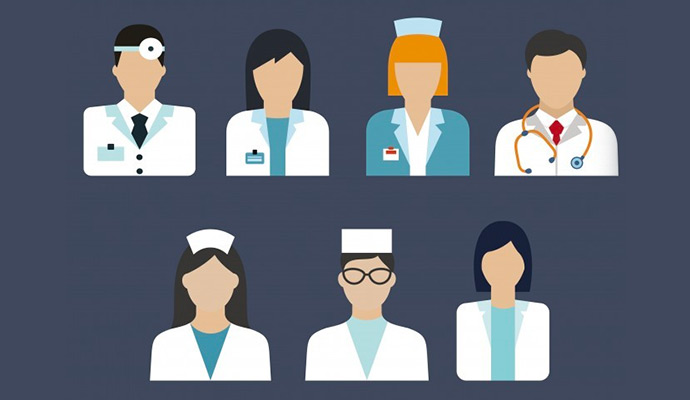Study: 30% of Healthcare Workers Not Fully Vaccinated
A CDC analysis shows that nearly one-third of healthcare workers are unvaccinated against COVID-19 risking transmission to patients were not fully vaccinated against COVID-19 by mid-September.

Source: Getty Images
- An estimated 30 percent of healthcare workers were not fully vaccinated against COVID-19 as of September 2021, according to a CDC analysis published in the American Journal of Infection Control.
The analysis results found that vaccination rates increased from 36 percent to 60 percent between January 2021 and April 2021. However, as of September 2021, only an estimated 70 percent of healthcare workers were fully vaccinated across all hospital types.
“Our analysis revealed that vaccine coverage among U.S. hospital-based [healthcare personnel] stalled significantly after initial uptake,” Hannah Reses, MPH, a member of the CDC team that conducted the analysis and the paper’s lead author, said in a press release. “Additional efforts are needed now to improve [healthcare personnel] vaccine coverage and reduce the risk of SARS-CoV-2 transmission to patients and other hospital staff.”
The CDC analysis used data from more than 3 million healthcare workers voluntarily reported by 2,086 hospitals to the HHS Unified Hospital Data Surveillance System on COVID-19 vaccination coverage.
The researchers looked at data reported between January 20, 2021, and September 15, 2021. They assessed the difference in vaccine coverage by hospital types, including children’s hospitals, short-term acute care hospitals (ACH), long-term ACH, and critical access hospitals.
The vaccination rates as of September varied from 63 percent to 77 percent, depending on the type of hospital.
Researchers found that children’s hospitals had the highest vaccination rate, with 77 percent vaccinated healthcare workers.
Short-term acute care hospitals had 70 percent of healthcare personnel vaccinated, followed by long-term acute care hospitals with nearly 69 percent.
Critical access hospitals have the lowest vaccination rate, with only 64 percent of the healthcare workers vaccinated. Critical access hospitals are rural hospitals with 25 or fewer acute care inpatient beds maintained by CMS funding.
Researchers noticed vaccination rates varied by location of the healthcare facility. Healthcare workers in non-metropolitan urban counties had the lowest vaccination rates of 63 percent, while healthcare workers in rural counties had a vaccination rate of 65 percent.
Hospitals in metropolitan cities have the highest vaccination rate of all locations, with 71 percent of healthcare workers vaccinated against COVID-19.
The researchers surveyed healthcare workers to gain an understanding about which factors drove vaccine hesitancy among healthcare workers.
The most prevalent concerns identified concerns among healthcare workers about COVID-19 vaccine efficacy included adverse effects, the speed of vaccine development, and lack of full FDA approval.
Healthcare workers who reported low trust in regulatory authorities and the government were also more likely to be opposed to receiving the vaccine.
Meanwhile, healthcare workers were more likely to recommend the COVID-19 vaccine to patients, friends, and family, indicating that healthcare workers could improve vaccine coverage in the general population,
Healthcare workers are at a higher risk for occupationally acquired COVID-19 resulting higher risk for transmitting the virus in a healthcare setting as they have direct contact with groups that are not yet eligible for the vaccine,
Recently, CMS issued a vaccine mandate requiring the COVID-19 vaccine for all eligible healthcare personnel at healthcare facilities that Medicare and Medicaid programs. This rule will require 17 million healthcare workers to be vaccinated by January 4, 2020.
Since the CMS’s vaccine mandate was issued, it has seen some backlash. Ten states filed a federal lawsuit over CMS’s interim final rule, claiming it’s unconstitutional and infringing on several laws.
